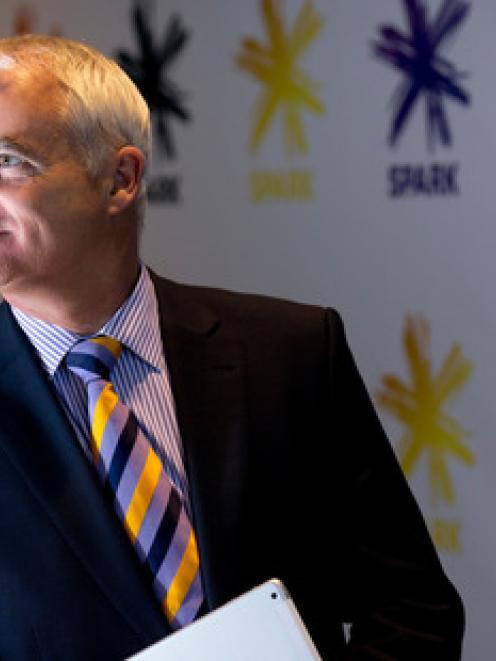
The Auckland-based company will raise prices on homephone-only, and 40 gigabyte and 80GB broadband plans by between $2.50 and $4.25 a month from Feb. 1 after the Commerce Commission this month indicated plans to cut wholesale telecommunications prices by a smaller amount than previously flagged, it said in a statement.
While the price increases are on Spark's lower-end plans, the retail service provider is making its unlimited broadband plan more attractive, trimming $10 a month from the package and dropping its 150GB and 500GB plans.
"Market competition has brought great value for customers and the expected wholesale cost reduction for Spark and other ISPs (internet service providers) has been built into current broadband prices," Chris Quin, Spark home, mobile and business chief executive said. "Given this negative uncertainty, Spark has no choice but to change its prices now."
Last week Spark warned it was reviewing its prices after Telecommunications Commissioner Stephen Gale's draft decision to set the monthly total charge allowable for the unbundled copper local loop (UCLL) and for unbundled bitstream access (UBA) at $38.39, up from the $34.44 monthly regulated price that came into effect on Dec. 1. That's still lower than the $44.98 monthly rental that had applied until December. Spark accounts for almost three-quarters of Chorus's annual revenue.
Spark estimates the draft pricing will increase its input costs by $60 million and if the decision stands, will materially lift the company's costs and have a negative impact on its 2015 earnings. The company has previously said it's too early to adjust guidance for low single digit growth in adjusted earnings before interest tax, depreciation and amortisation from $936 million in the 2014 year, and didn't update the forecast today.
The company said it's still unclear as to whether the regulator will backdate the new pricing, and if it decides to do so, Spark's higher prices won't fully cover the increased wholesale costs.
"Once we have a clearer view on the final decision on wholesale charges and whether these charges will be backdated we will review the situation and we will do the right thing by our customers," Quin said.
Spark dropped its prices as part of its transformation into a digital services business under the stewardship of Simon Moutter, who wanted the company to compete more aggressively in broadband to stop customers from leaving simply on price.
That competition has seen prices drop for customers, and since Chorus was carved out of Spark, then Telecom, in late 2011, consumer prices for telecommunications services have dropped 10 percent, according to government figures.
In August, Quin told analysts retail service providers had already cut prices in anticipation of a lower regulated price on the copper lines, and that there wouldn't be any further reductions for consumers.
Shares of Spark last traded at $3.03, and have gained 31 percent this year. The stock is rated an average 'hold' based on 10 analyst recommendations compiled by Reuters, with a median price target of $2.83.












